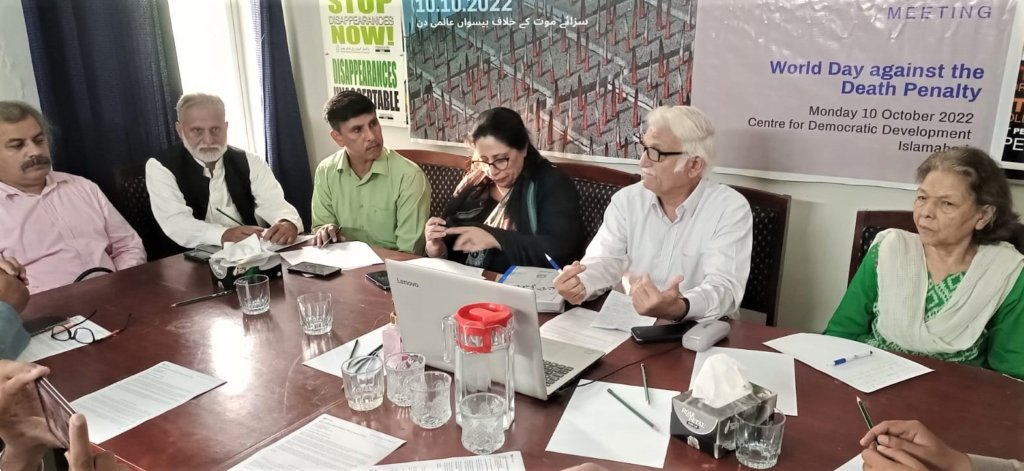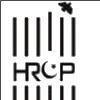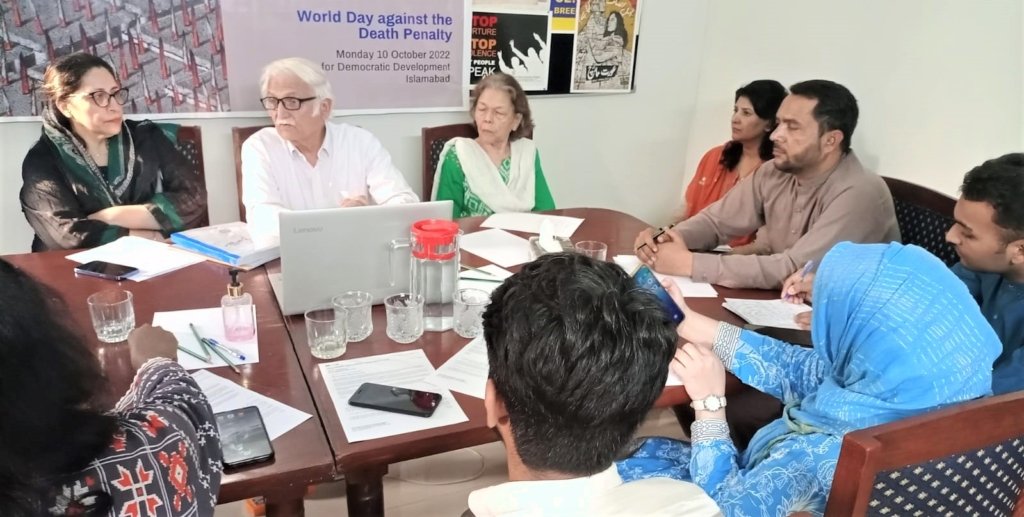News Desk

Islamabad, Oct 10: There is a need for a rational debate on the death penalty involving scholars, jurists, academia, civil society and human rights defenders and legislation on the scope of the President’s powers to grant pardons to resolve the ambiguities created by the rulings of the superior courts.
This was recommended by human rights defenders at a session on capital punishment held at the Human Rights Commission of Pakistan (HRCP) office on Monday, according to a press release.
They said there was little relevance of the death penalty to deterrence, a real likelihood of a serious miscarriage of justice, and irreversibility of the capital punishment and brutalization of society.
They called for revisiting the death penalty.
The discussion was organized in connection with the International Day Against the Death Penalty which is observed throughout the world on October 10 every year.
Council member and HRCP convener of the Islamabad chapter Nasreen Azhar in her opening remarks said that the observance of the day provided an occasion to examine how the application of the death penalty interested in legal, social and political realities in Pakistan.
Council member Farhatullah Babar gave a talk on the subject, the trend worldwide and suggested measures that may be taken to reduce it.
“In a broken criminal justice system like that in Pakistan, there was a great and real danger of inflicting an irreversible punishment on an innocent person,” he said, citing the example of the two brothers who spent 8 years on death row and were finally acquitted by the Supreme Court in October only to find that they had already been hanged a year before exposing serious flaws in the country’s criminal justice system.
The world was moving towards abolishing the death penalty in Pakistan the number of crimes carrying the death penalty increased.
Today there are 33 offences that are punishable by death under various laws in Pakistan. As a result, the country today has one of the largest death row populations in the world. Many of them are sentenced for offences that are ineligible for capital punishment under international law, the former senator said.
Since the lifting of the moratorium on execution in December 2014 Pakistan had executed more than 500 people making it one of the biggest executioners in the world.
The meeting noted that the death penalty did not exist for militants and for the rich and powerful and only the poor were hanged. Suicide bombers were not deterred and the rich got away with the misapplication of Qisas and Diyat law.
It said that the judiciary’s role in protecting the rights of convicts on death row has not been exemplary. A former CJP set out to build dams and used suo motu powers to enlarge his own power base instead of protecting the rights of the convicts on death row.
It lamented that promises made to review the laws that carry the death penalty and streamline procedures for mercy petitions have not been fulfilled.
The Quran stressed mercy and forgiveness instead of retribution.
At a conference in Amman in 2017, an Egyptian scholar remarked that the Quranic injunction (2:179) “in just retribution, there is life for you” was a subtle suggestion that ‘qisas’ was protection and advancement of life of society and not revenge.
The meeting also called for protecting basic rights in death penalty cases including the right to proper defence, protection against torture, sparing juveniles and mentally challenged people from execution, providing legal services to migrant Pakistani workers sentenced to death and simplifying procedures for mercy petitions.
The deepening of the meaning of the right to life, the raising of the bar of human dignity by due process requirements and Quranic stress on forgiveness calls for a wider public debate and ijtihad on executions..
As a first step at least the juveniles on death row and those with mental illnesses and physical disabilities be spared from executions and the number of offences carrying the death penalty needed to be reviewed, the meeting noted.
Another important issue pertained to confessions extracted from suspects under torture. Pakistan had signed and ratified the Convention Against Torture (CAT) but still not legislated anti-torture law he said and called for early anti-torture legislation.
There were serious flaws in the procedure for mercy petitions and as a result, there was an unwritten policy in place to summarily reject all mercy petitions against death sentences.
The meeting called for complying with international standards relating to the rational exercise of the power of pardon and to bring the country’s death penalty system in line with international law. The government should reform the process of submission of mercy petitions by prison authorities on behalf of death row prisoners who lack legal representation ensuring that the petitions are more detailed.
There is a need for legislation on the scope of the President’s powers to grant pardons and commutations under Article 45 to resolve the ambiguities created by the rulings of the Supreme Court and the Federal Shariat Court. All mercy petitions should be decided in a reasonable time frame and in case of delays the sentence should be commuted.
Chairperson’s statement
Meanwhile, Chairperson Hina Jilani in an official statement said “the HRCP reiterates its stance against capital punishment, not only on the grounds that the state’s duty is to protect the right to life, but also that the death penalty is incompatible with Pakistan’s international obligation to prohibit torture and the use of cruel, inhuman and degrading punishment.”
“In a briefing note co-authored with the International Federation for Human Rights (FIDH), HRCP observes that the use of torture exists at all stages of the death penalty process: from the practice of custodial torture to coerce confessions from persons accused of capital crimes, to squalid conditions on death row—including the mental anguish of anticipating execution—to the act of execution by hanging itself.
“HRCP also notes that there is no official data on the incidence of botched executions in Pakistan and therefore no accountability. This represents a serious flaw in the criminal justice system.
Despite a welcome drop in the number of executions and death sentences since 2020, poor and vulnerable prisoners remain disproportionately likely to be sentenced to death. It is also a matter of grave concern that a wide range of offences that do not meet the threshold of ‘the most serious crimes’ still carries the death sentence.
HRCP demands that the state immediately establish an official moratorium on executions and ensure that law enforcement who rely on torture to obtain evidence is held strictly accountable.
The right to a fair trial for those accused of capital crimes must also be respected, while conditions on death row, especially for persons accused of blasphemy, must be improved. HRCP also urges the government to ratify the Second Optional Protocol to the International Covenant on Civil and Political Rights, aiming at the abolition of the death penalty.

The High Asia Herald is a member of High Asia Media Group — a window to High Asia and Central Asia



